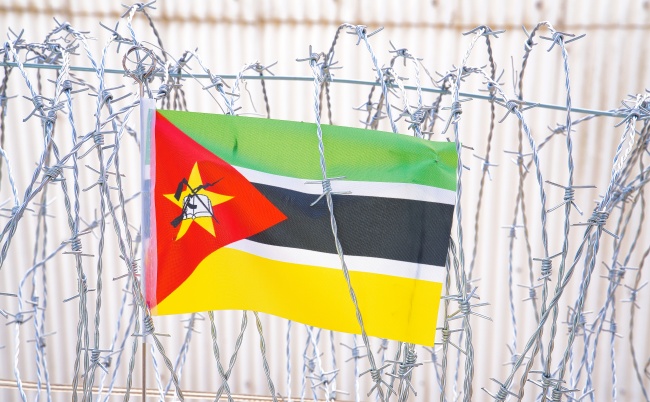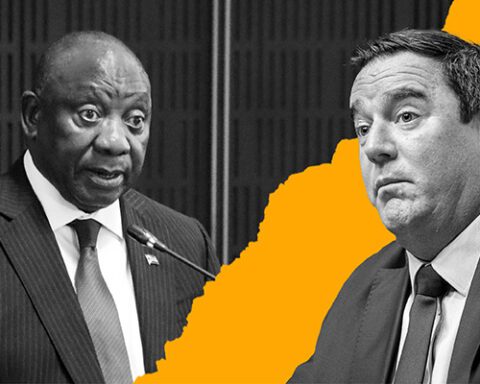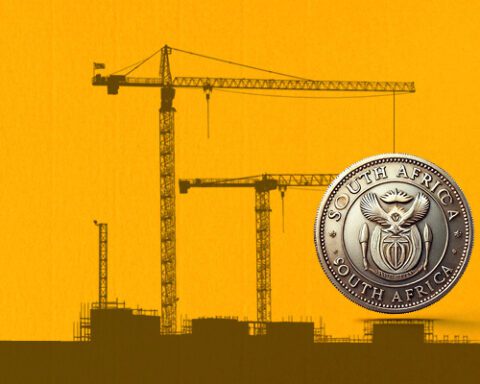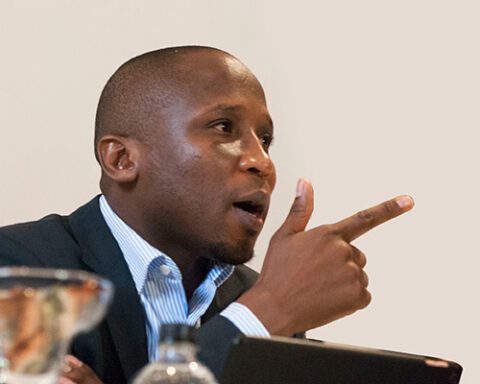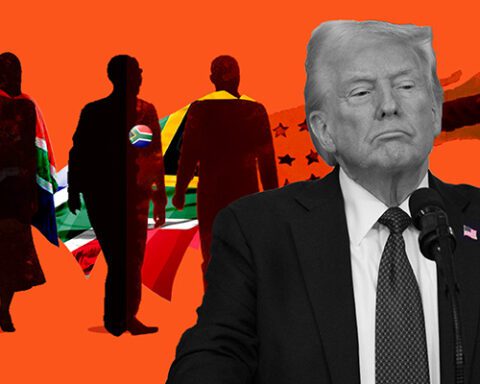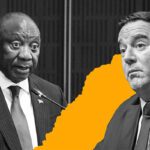As the threat of violence hangs heavy over Maputo, rights group the Center for Democracy and Human Rights has hit out at President Cyril Ramaphosa for his “silence in the face of Mozambique’s unfolding political and human rights crisis”.
The country has been battered since its electoral commission declared on October 24 that Frelimo – the liberation party that has held power for 49 years – had won the presidential election, despite claims by the opposition candidate Venâncio Mondlane that his own parallel tally had given him victory.
Nor was it just Mondlane. The EU said it had witnessed “irregularities during counting and unjustified alteration of election results at polling station and district level”.
But widespread protests at this result have been met with an iron fist from the Frelimo government, leading to at least 41 people being killed, the government disabling the internet, and social media channels such as Facebook and Twitter being blocked. Footage of black smoke encircling the capital Maputo, amid the sound of gunshots, has been broadcast across the world.
“Mozambican security forces have indiscriminately fired into residential areas and deployed excessive force, including live ammunition, to disperse thousands of people,” said Human Rights Watch this week. The internet blackout “inhibits people’s ability to receive and use life-saving information” in a time of crisis, it said.
In an open letter sent to Ramaphosa on Sunday, Adriano Nuvanga, a professor of political science at Maputo’s Eduardo Mondlane University and head of the Center for Democracy and Human Rights, implored South Africa’s president to “take a stand for justice and the principles you represent”.
This silence, Nuvanga said, stands at odds with South Africa’s proactive role in lodging a case of genocide with the International Court of Justice in the Hague this year on behalf of the Palestinian people in Gaza. “Yet closer to home, with your neighbour, whose language, struggles and aspirations echo South Africa’s own, you are silent,” he wrote.
Nuvanga has also rubbished the Mozambican government’s justification for this crackdown – as necessary to stamp out an “attempted coup” – as a baseless excuse. On Wednesday, defence minister Cristóvão Chume said that “to protect the interests of the state”, the “armed forces will replace the police on the ground”.
Ramaphosa’s reluctance to do anything is not simply hurting Mozambicans, Nuvanga said, it is also damaging the South African businesses operating in the country.
This week, the main land border between South African and Mozambique, Lebombo, was closed. Trucks shipping commodities to the Maputo port – mostly ferrochrome, coal and copper – were stuck in queues at the border which, at one point, stretched 25km.
This closure cost the trucking industry an estimated R10m per day, according to Gavin Kelly, the head of the Road Freight Association.
In an interview, Jose dos Santos, who owns the Lebombo Village Supermarket, told the Sunday Times: “This has been a terrible week for us. Our revenue is down by 90% … our food is very important to the residents of Mozambique.”
Even those trucks that did get through to Maputo found the port closed for business on Thursday. Grindrod, the South African logistics company which runs the port, cited safety reasons – though it was open again on Friday.
On Friday, the Lebombo border was opened again for passengers, something which Mike Masiapato, the head of the Border Management Authority, said “paves the way for the full reopening of the port”.
Even in the cities, South African firms were hit by the looting, which was a side-effect of the protests. This included Shoprite, whose branch OK Furniture was looted last week, leading to the company shutting its stores temporarily. A number of other large South African retailers operate in Mozambique, including Mr Price, Woolworths and Spar.
Echoes of Zimbabwe
South Africa’s silence has disturbing echoes of its policy of “quiet diplomacy” towards Zimbabwe, most notably after Robert Mugabe’s Zanu-PF lost the 2008 election to the Movement for Democratic Change (MDC), but resorted to a brutal campaign of killing ahead of a run-off vote.
South Africa did nothing to intervene, despite evidence from groups like Human Rights Watch that Zanu-PF had set up “torture camps to systematically target, beat, and torture people suspected of having voted for the MDC”.
Nuvanga said Ramaphosa’s silence was “deafening and deeply alarming”, particularly since the ANC had jumped the gun and congratulated Frelimo on its victory before the results were announced on October 24. This felt more like an “endorsement” of Frelimo than anything else.
He said Mozambique’s youth took to the streets peacefully, asking that their will as expressed at the voting booths be respected. “Yet this legitimate plea has been met with brutality from state forces – shooting to kill, leaving countless injured, and deploying teargas into neighbourhoods, which has precipitated a public health crisis unparalleled in our history,” he said.
South Africa might be the regional economic powerhouse, so its failure to intervene is more conspicuous, but the Southern African Development Community has been equally sluggish. The regional intergovernmental body has called for a special summit to be held in Harare to discuss the Mozambique crisis – but it has scheduled this for November 20 rather than immediately.
It sends a distinctly poor message of how seriously the nearby governments treat the violent repression of human rights happening next door.
Top image: Flag of Mozambique. Picture by Luis Diaz Devesa/Getty Images
Sign up to Currency’s weekly newsletters to receive your own bulletin of weekday news and weekend treats. Register here.
